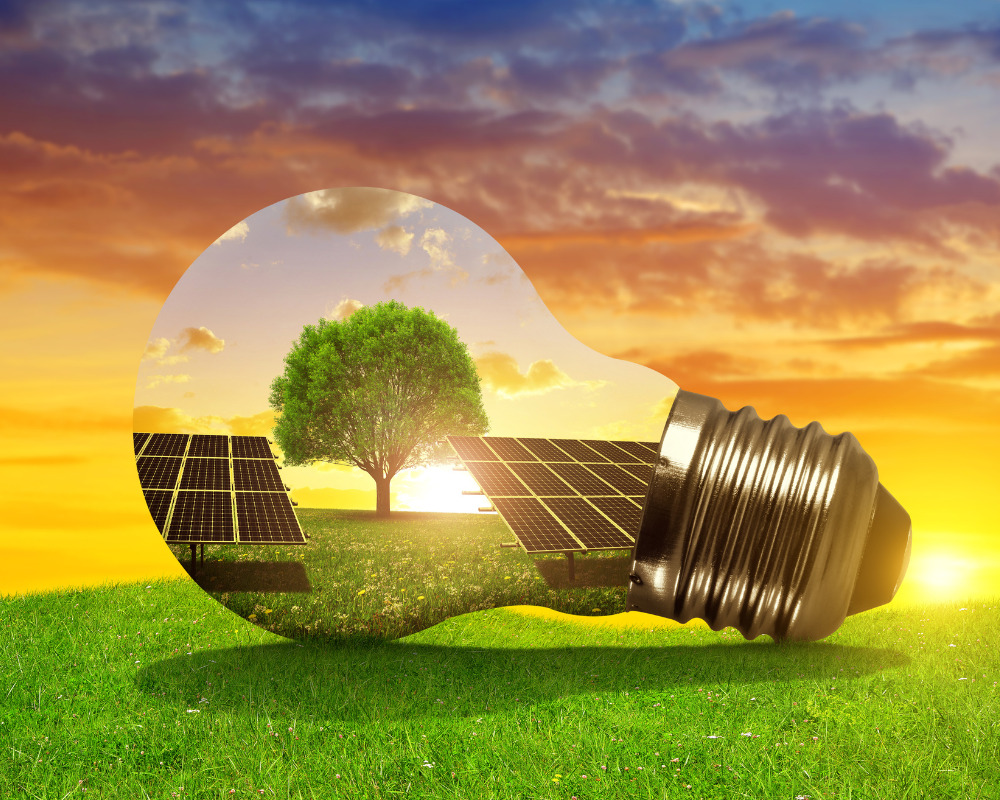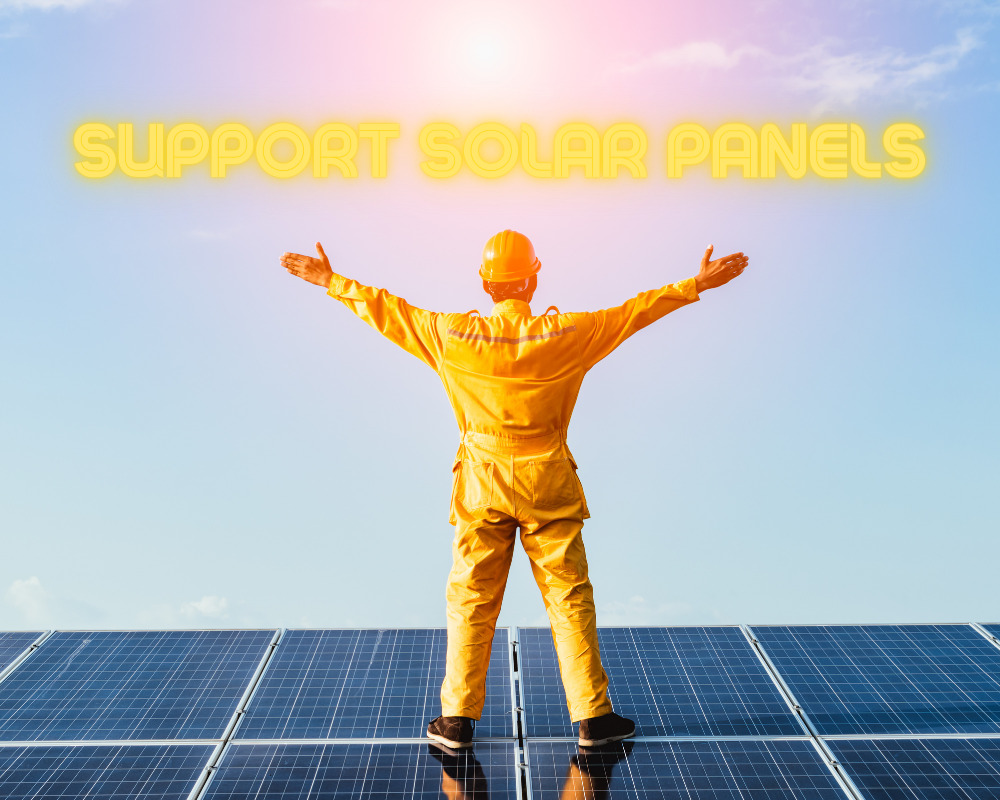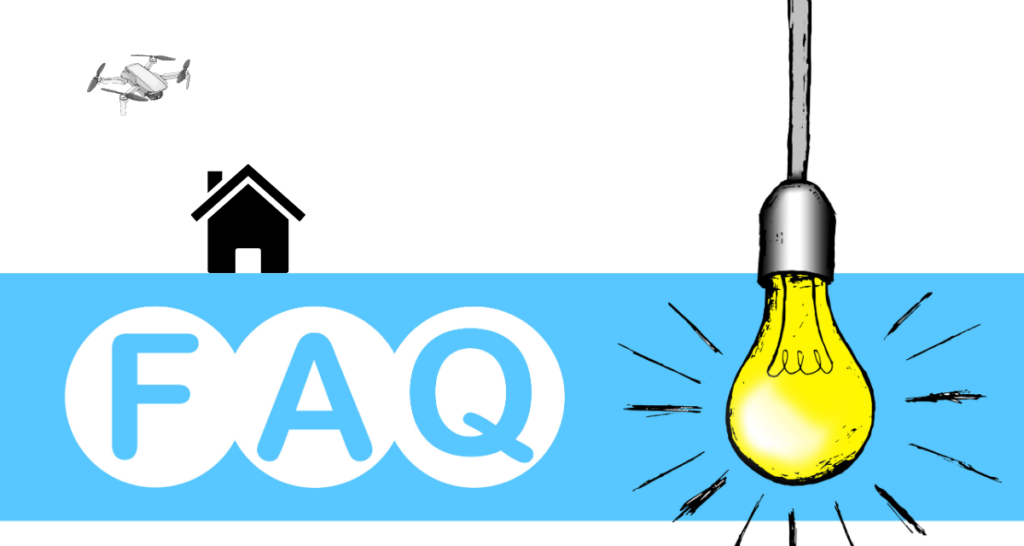Introduction
Illinois is shining a light on the future of renewable energy with its new groundbreaking law—H.B. 4412—that prevents local governments from blocking solar and wind projects. Moreover, this transformative legislation promotes the statewide development of clean, sustainable power sources and helps homeowners leverage their solar rights more effectively.
Furthermore, Illinois is taking giant leaps toward a greener tomorrow with uniform zoning ordinances, easier installation processes for residential systems, and increased investment in alternative energies.
Key Takeaways
| Illinois has passed a groundbreaking law, H.B. 4412, that prevents local governments from blocking solar and wind projects, promoting statewide development of clean and sustainable power sources. |
| The new law standardizes zoning ordinances across all jurisdictions in the state, making it easier for developers and homeowners to navigate regulations surrounding renewable energy development. |
| Solar energy projects in Illinois offer numerous benefits, including reduced greenhouse gas emissions, economic benefits for local communities through job creation and lower utility bills, and increased energy independence. However, challenges such as limited incentives and subsidies on the regulatory landscape persist. |
| To support solar energy in Illinois, one can install solar panels on their property by working with qualified contractors who know about incentives available to them or advocate for policies that promote renewable resources by supporting local projects. |
The New Illinois Law And Solar Energy Projects
The new Illinois law, H.B.
Overcoming Local Government Obstacles
Overcoming local government obstacles is a significant milestone for Illinois solar and wind energy projects, thanks to the new H.B. 4412 law. Consequently, the legislation has effectively eliminated local control over these renewable energy sources, preventing authorities from impeding their development.
As part of this statewide shift towards sustainable energy solutions, all jurisdictions must now uniformly apply zoning ordinances. For example, prohibiting homeowners associations (HOAs) from banning solar installations on sections of properties or imposing restrictions that would reduce output by more than 10%.
This groundbreaking policy has already had a profound impact on numerous communities throughout Illinois. As a result, individuals and businesses have eagerly seized the opportunity to invest in eco-friendly technology, capitalizing on these favorable regulations.
By successfully overcoming barriers set up by local governments, the state ultimately creates an inclusive environment where access to renewable resources, such as solar energy, becomes within reach for everyone—not solely limited to affluent households or large corporations with deep pockets.
Uniform Standards On Zoning Ordinances
The new Illinois law on solar energy projects requires local zoning authorities to adopt a standard zoning ordinance with uniform allowable setbacks for solar and wind projects.
This means that counties across the state will have consistent regulations regarding siting and building solar facilities. The aim is to make it easier for developers and homeowners to navigate the regulations surrounding renewable energy development.
While some opponents are concerned about losing local control, proponents believe the standardized approach will promote clean energy development while reducing greenhouse gas emissions statewide.
Benefits Of Solar Energy Projects In Illinois

Solar energy projects in Illinois have numerous benefits. This includes reduced greenhouse gas emissions, economic benefits for local communities, and increased energy independence.
Reduced Greenhouse Gas Emissions
Solar energy projects benefit Illinois and its residents, including reducing greenhouse gas emissions. Using renewable energy sources like solar power can reduce our reliance on fossil fuels that emit harmful pollutants and contribute to climate change.
According to the Department of Energy, a 4-kilowatt solar system can offset up to 6 tons of carbon dioxide emissions annually. That’s equivalent to planting over 100 trees annually! Additionally, we can improve our communities’ air quality and public health by transitioning towards clean energy sources.
Economic Benefits For Local Communities
Solar energy projects in Illinois come with significant economic benefits for local communities. Firstly, solar development creates jobs in various fields, such as construction, engineering, and installation.
A National Renewable Energy Laboratory report found that solar industry jobs are higher paying than many traditional fossil fuel jobs. Additionally, most jobs cannot be outsourced since they require on-site work.
Moreover, solar development can help reduce utility bills for homeowners and businesses by generating cheaper electricity from renewable sources instead of expensive utility power plants running on coal or gas.
These economic benefits make solar energy projects a promising option for Illinois’ future, especially with the state’s commitment to reducing greenhouse gas emissions and promoting clean energy alternatives.
Increased Energy Independence
Illinois can achieve increased energy independence through solar power projects by reducing its dependence on fossil fuels and diversifying its energy sources. Renewable energy is a domestic source of electricity generation, which helps reduce the state’s reliance on imported fuel sources.
Solar energy is free from the sun, meaning that when homes and businesses generate electricity using solar panels, they are less reliant on utility companies to provide them with electricity.
This allows individuals and communities to save money while contributing towards a sustainable future for Illinois.
Challenges Facing Solar Energy Development In Illinois
Despite the new Illinois law supporting solar energy projects, challenges exist, including limited incentives and subsidies, technical and regulatory barriers, and opposition from utilities and fossil fuel interests.
Limited Incentives And Subsidies
The development of solar energy projects in Illinois faces several challenges, including limited incentives and subsidies. Despite renewable energy’s potential long-term economic and environmental benefits, current policies do not provide sufficient financial support to fully encourage solar development. Here are some facts about the issue:
- Illinois offers a solar energy tax credit for homeowners. It applies to those who install residential solar systems. However, it only covers up to 25% of the total installation cost or $1,000, whichever is less.
- The state also has a Renewable Energy Credit (REC) program, but the credits have been undervalued, making them less attractive to investors.
- Some federal programs like the Solar Investment Tax Credit (ITC) can help reduce costs for businesses and homeowners that invest in renewable energy. However, these types of incentives are time-limited and subject to political changes.
- Many utilities still rely on non-renewable sources of energy, which offer more stable returns while indirectly subsidizing fossil fuels through federal tax credits.
- Limited public funding for research into new technologies like battery storage or floating PV systems further limits innovation in the field.
To promote wider adoption of solar energy in Illinois, policymakers need to consider how best to incentivize investment without placing undue burden on taxpayers, while utility providers need to shift towards more sustainable business models that do not rely so heavily on traditional power plants.
Technical And Regulatory Barriers
Despite the new law in Illinois that removes local control over the siting of solar and wind projects, technical and regulatory barriers must be addressed.
One challenge facing solar energy development is the limited incentives and subsidies available to homeowners, businesses, and communities seeking to invest in clean energy.
In addition to limited financial support, technical barriers such as connection issues with utility grids can pose a challenge for those who want access to their excess power.
Further regulatory challenges include permitting requirements, property rights disputes between neighbors or landlords/tenants, zoning ordinances that favor other land uses over renewables (such as agriculture), fuel procurement procedures from independent suppliers where utilities monopolize contracts on behalf of ratepayers – all of which can add delays and cost burdens on a project’s development timeline.
However, despite these challenges, Illinoisans everywhere need to continue advocating for sustainable solutions by supporting local renewable energy initiatives through grassroots campaigns promoting impactful legislation like H.B.
Opposition From Utilities And Fossil Fuel Interests
Despite the new Illinois law that sets requirements for solar and wind projects, there are still some challenges. Facing solar energy development in the state, these hurdles need to be addressed for further progress. One significant obstacle is opposition from utilities and fossil fuel interests.
One example of this was seen in 2019 when a utility company tried to impose a demand charge on residential solar customers, which would have made their bills significantly more expensive.
The move drew criticism from environmental advocates and homeowner associations. They argued that it would discourage the installation of rooftop solar panels.
Limited incentives and subsidies pose another challenge to solar energy development. Despite Illinois’s significant strides toward clean energy, additional incentives are necessary to enhance adoption rates further. Ultimately, this will make solar energy affordable to everyone.
Overall, opposition from utilities and fossil fuel interests combined with limited incentives poses significant obstacles to sustainable energy production in Illinois.
Taking Action To Support Solar Energy In Illinois

Taking action to support solar energy in Illinois can start with installing solar energy systems, consulting a qualified solar energy contractor, advocating for renewable energy policies, and supporting local renewable projects.
Installing Solar Energy Systems
Installing solar energy systems is one of the best ways to support solar energy in Illinois. Here are some steps to consider:
- Determine if your home or business is a good candidate for solar panels. Factors to consider include the roof’s age, direction, and angle, as well as nearby trees and shade.
- Research qualified solar energy contractors in your area and obtain multiple bids. Look for licensed, insured, and certified contractors by organizations like the North American Board of Certified Energy Practitioners (NABCEP).
- Choose a contractor offering high-quality solar equipment and providing warranties on equipment and installation.
- Consider financing options such as loans, leases, or power purchase agreements (PPAs), which can make solar more affordable for homeowners and businesses.
- Work with the contractor to design a system that meets your energy needs and budget. They will help you choose the right size and number of panels, inverters, batteries, and other components.
- Obtain permits from your local building department before installation begins.
- After installation, monitor your system’s performance regularly to ensure it produces enough electricity to meet your needs.
By installing a solar energy system on your property, you can reduce your reliance on fossil fuels while enjoying lower energy bills and increased independence from traditional utilities. Plus, with new Illinois laws supporting renewable energy development across the state, you can be part of an exciting movement toward a more sustainable future for all Illinoisans!
Consulting With A Qualified Solar Energy Contractor
If you’re interested in installing solar energy systems in Illinois, consulting with a qualified solar energy contractor is important.
A reputable solar contractor can also help you navigate Illinois’s complex regulatory landscape governing renewable energy projects. They can advise you on local zoning ordinances or homeowner association rules that may impact the siting or installation of your panels.
Moreover, they know about incentives like rebates, tax credits, and net metering programs offered by utility companies, which make switching to clean energy more affordable than ever.
Advocating For Renewable Energy Policies
Advocating for renewable energy policies is essential in promoting sustainable energy practices in Illinois. This can involve supporting state and local laws that incentivize solar and wind power, encouraging public utilities to prioritize clean energy sources, and working with advocacy groups to promote investment in alternative energy technologies.
For instance, the recent passage of H.B. 4412 shows how effective advocacy can lead to significant policy change. The law establishes precise criteria for zoning ordinances governing solar and wind projects. It also prohibits local governments from completely blocking these developments.
Supporting Local Renewable Energy Projects
One way to take action in helping Illinois reach its renewable energy goals is by supporting local renewable energy projects. These may include community solar installations, rooftop solar arrays on public buildings or schools, or even small-scale wind turbines.
Additionally, supporting local renewable energy projects can have numerous benefits beyond reducing greenhouse gas emissions. According to a report from the National Renewable Energy Laboratory (NREL), investing in decentralized solar power generation can benefit communities through job creation and increased tax revenues.
Plus, locally sourced renewable power reduces dependence on fossil fuels and strengthens energy security by building resilience against natural disasters and other disruptions to our electricity grid.
Conclusion
In conclusion, the new Illinois Law on solar energy projects is a game-changer for renewable energy development in the state. With uniform standards and zoning ordinances that prevent local governments from blocking solar installations, homeowners and businesses can now take advantage of sustainable energy options without unnecessary obstacles.
Solar development faces challenges in incentives, regulations, utility opposition, and fossil fuel interests. However, supporting renewable energy in Illinois is still possible through proactive measures.
By advocating for policies that promote renewable energy resources and supporting local projects, we can ensure a brighter future for our planet while reaping economic benefits at the same time.
At DroneQuote, we are thrilled by the groundbreaking legislation, H.B. 4412, that Illinois has enacted to foster the growth of renewable energy and support homeowners in embracing solar power. This transformative law empowers individuals to exercise their solar rights while promoting the development of clean and sustainable energy sources statewide. Illinois is paving the way towards a greener tomorrow, and we are excited to be part of this sustainable revolution.
![]()
Want To Go Solar?
Are you ready to harness the power of renewable energy and make a positive impact on the environment? At DroneQuote, we offer top-notch solar and roofing services to help you take advantage of Illinois’ progressive legislation. Our experienced team is dedicated to providing customized solutions that meet your specific needs and maximize the benefits of solar energy for your home.
Sign up today to schedule a consultation and explore how our expert technicians can easily guide you through the installation process. Let’s work together to create a greener future for Illinois and unlock the full potential of clean, sustainable power in your home.
FAQs:

- What does the new Illinois law mean for solar energy projects?
The new Illinois law prevents local governments from blocking solar energy projects. This means the developers can no longer be prevented from building solar arrays within their jurisdictions. Also, this provides clarity and consistency in terms of regulations regarding the expansion of renewable energy sources.
- Why was this law passed in Illinois?
This law was passed to promote the development of clean energy initiatives throughout the state. It aims to reduce greenhouse gas emissions and create jobs in the growing renewable energy production sector.
- How will this affect existing local zoning laws regarding land use policies?
Local zoning laws still apply to solar projects. However, they cannot single out solar for special treatment or make it prohibitively expensive compared to other zoning-approved uses.
- Can homeowners now install large-scale solar panels without any approval from their local government?
No, local governments cannot block large-scale solar installations altogether. Standard permitting processes ensure safe installation practices during construction and operation phases.
General Facts
- Illinois has passed a new law, H.B. 4412, which sets requirements for wind and solar projects and prevents local governments from blocking them.
- The law also requires local zoning authorities to adopt a standard zoning ordinance with uniform allowable setbacks for solar and wind projects.
- Homeowners associations (HOAs) cannot ban solar installations or impose restrictions that reduce output by over 10%.
- Illinois state statutes leave most solar development regulations to local governments.
- The new law has removed local control in siting solar and wind farms, causing concern among opponents.
- “Renewable energy resources” in Illinois do not include the incineration or burning waste.
- Illinois power companies must legally credit solar system owners for excess electricity generated and exported to the grid.
- The Illinois Solar Panel Guide provides information on pricing, incentives, and tax credits for solar installations.
- Texas leads in renewable energy, although Illinois has made significant progress in recent years.
